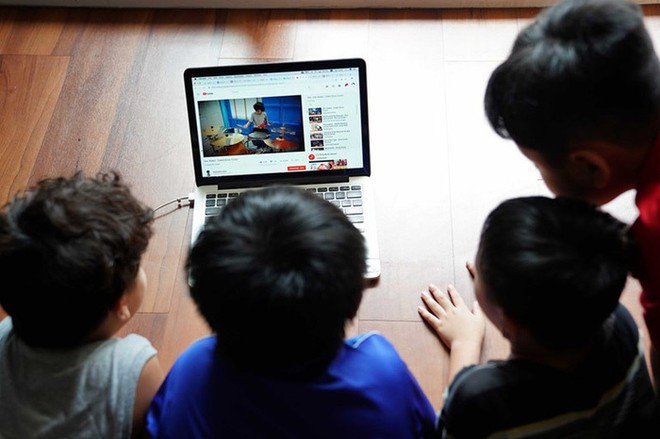Growing threats
Evidence from many countries, including Viet Nam, shows that children are exposed to vast, unregulated digital environments from a young age. The dangers are real and rising.
A study by Plan International in 2020 revealed that online bullying among Vietnamese students increased from 12% in 2016 to 18% in 2020. Shockingly, over half of the country’s adolescents report experiencing cyberbullying.
Several European nations - including France, Germany, Belgium, Norway, and Italy - have responded by enforcing age restrictions on social media. Leading the charge, Australia became the first to ban those under 16 from accessing these platforms as of late 2024.
According to Master Nguyen Thuy Quynh, lecturer at the Faculty of Educational Psychology, Ha Noi National University of Education, Australia’s policy stems from extensive psychosocial research.
This evidence confirmed the profound negative impact social media has on underage users. The ban is not just a preventive measure—it’s viewed as essential to safeguarding young minds in today’s perilous online world.
Viet Nam boasts over 70 million social media accounts, one-third of which are owned by minors. This scale of youth participation presents enormous challenges for protection efforts.
Lieutenant Colonel Phi Van Thanh from the Ministry of Public Security’s Cybersecurity and High-Tech Crime Prevention Department
The Ministry of Public Security has underscored a concerning trend: juvenile crime is increasing, with roughly 13,000 underage lawbreakers recorded annually. Disturbingly, many of these individuals flaunt their offences online, treating them like digital trophies and defying legal consequences.
Lieutenant Colonel Phi Van Thanh, Cybersecurity and High-Tech Crime Prevention Department, Ministry of Public Security, reported that Viet Nam ranks 16th globally in internet usage, boasting over 70 million social media accounts—one-third of which are owned by minors. This scale of youth participation presents enormous challenges for protection efforts.
From policy to corporate action
Viet Nam’s regulatory structure includes robust laws like the Law on Children, the Cybersecurity Law, and Decree No. 147/2024/ND-CP on internet service and online content management. While these laws assign clear responsibilities to relevant parties, enforcement remains a complex challenge.
For example, the rule prohibiting users under 16 from registering social media accounts raises the issue of how platforms can accurately verify age.

Children are exposed to vast, unregulated digital environments from a young age (Photo: baophapluat.vn)
Cybersecurity expert Phan Phu Thuan from FPT Smart Cloud emphasised that mobile number checks are not enough. He advocates for a layered system linked to national ID databases, combining tools such as biometrics, AI, and parent-verified declarations using ID or OTP codes. The system must also rigorously safeguard personal data, ensuring transparency and privacy protection at every step.
Master psychologist Vu Thu Ha from the Viet Nam Institute of Psychological Training and Intervention pointed out the developmental vulnerabilities of minors. Young users lack the maturity to safely navigate digital platforms. In families where parental supervision is limited, social media restrictions become even more critical.
“We’re not proposing a blanket ban on internet access,” she clarified. “Learning must remain accessible—but social media and gaming platforms should be limited.”
Viet Nam’s emerging “four-party partnership” model - uniting the State, tech enterprises, schools, and parents - offers a promising framework for child protection.
Viet Nam’s emerging “four-party partnership” model - uniting the State, tech enterprises, schools, and parents - offers a promising framework for child protection.
The State must continue improving the legal framework, enforce strict supervision of domestic and foreign tech corporations’ compliance with child protection regulations, and proactively develop or require platforms to provide safety controls for parents, alongside digital skills training for the public.
Tech businesses must actively participate in protecting children online, viewing the creation of safe platforms as an ethical commitment. Children remain present in the digital space, but it must be a space with verified identity, proper guidance, and appropriate supervision.
While companies may need to invest more resources, this contributes to building a sustainable future where technology serves humanity.
Viet Nam may not have opted for an outright ban, but the country must embrace stronger, more assertive measures to protect children in the digital environment.
















